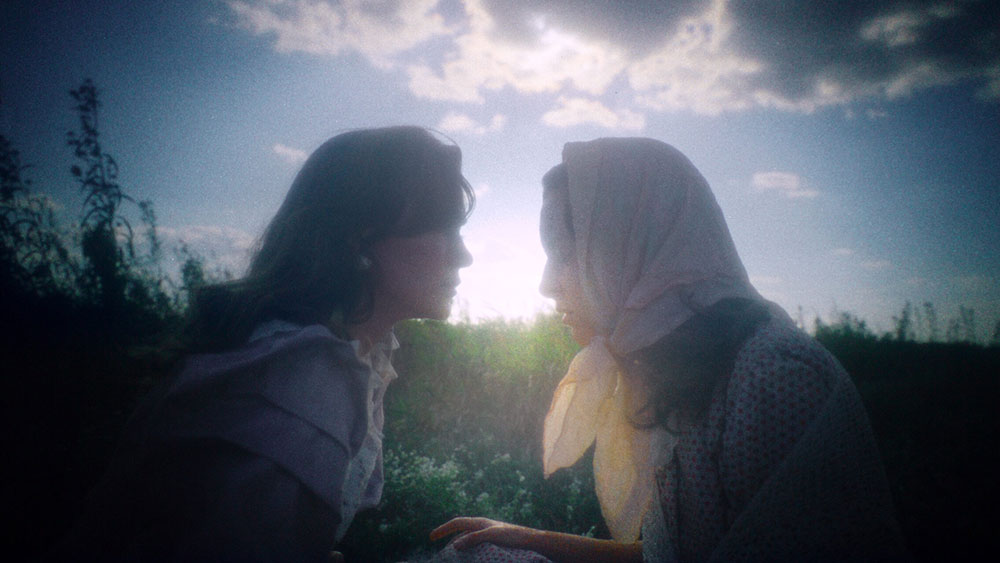The films Graham Swon has produced over the past decade all share a penchant for intellectually dense storytelling and a sharp sense of place that feels deeply cinephilic without being overly referential. With a résumé that includes some of the most noteworthy independent New York productions of the past decade—Hermia and Helena (2016), Classical Period (2018), Notes on an Appearance (2018), Fourteen (2019)—he has continually helped fuel the vanguard of American cinema through these small-scale productions. His second feature as a director, 2023’s An Evening Song (for three voices), is a dense and stimulating film that showcases the same ingenuity as the work as he has produced.
The plot is derived from the life of Barbara Newhall Follett, a literary child prodigy who was hailed for the two novels she published when she was 13 and 14, but subsequently fell off the map and went missing at the age of 25 in 1939. Swon reimagines the last year of her life as a melodramatic love triangle between Barbara (Hannah Gross); her husband Richard (Peter Vack), a dime store horror writer; and their maid Martha (Deragh Campbell), a religious local covered in burn-scars. Living up to the amorphousness implied by its title, the plot eschews straightforward dramatic development in favor of a medley of interior monologues delivered by each character through voice-overs that are set to a dreamy ambient music score by Rachel Evans.
“Everything individual was melting away, turning into and moving toward nothing,” says Barbara in the film’s opening. Her sentiment keys us into the free-floating sense of perspective Swon creates throughout the film. He woozily weaves around the physical and emotional world of the characters, dipping from one voice to another and sometimes overlaying multiple voices. The film refuses to ground us in any viewpoint throughout its exploration of the class, gender, and intellectual lines its characters navigate in their lives. This is manifest in Martha’s budding romances with both Peter and Barbara. When she begins trying on their clothes, the lines between them start to melt away; they all begin to project themselves onto one another and speculate over each other’s inner mysteries.
Working with cinematographer Barton Cortright, notable for his work on the films of Ricky D’Ambrose and Joanna Arnow, Swon crafts a hazy sense of subjectivity through a unique visual approach. Because the film was first reflected off of a sheet of custom ground glass before being captured by the camera’s lens, its images are filled with soft edges, intense vignetting, and a grainy visual texture that is reminiscent of a camera obscura. This adds a further sense of impressionistic unmooring and, combined with Swon’s fondness for dissolves, helps build a visual dynamic where the various characters and spaces in the film feel porous. Even the lighting and mise-en-scène are often in flux. In one lengthy scene of dialogue, the lighting slowly changes from orange to blue and in a particularly head-spinning circular dolly shot at the film’s midpoint the same image is superimposed over itself and magnified, emulating the sensation of watching a 3-D film with the glasses off. The result is stunning, at once calling back to previous experiments in cinema history and leaving you with a newfound sense of aesthetic and emotional possibility.
An Evening Song (for three voices) screens this evening, March 17, at the Museum of the Moving Image as part of “First Look 2024.” Director Graham Swon will be in attendance for a Q&A.



